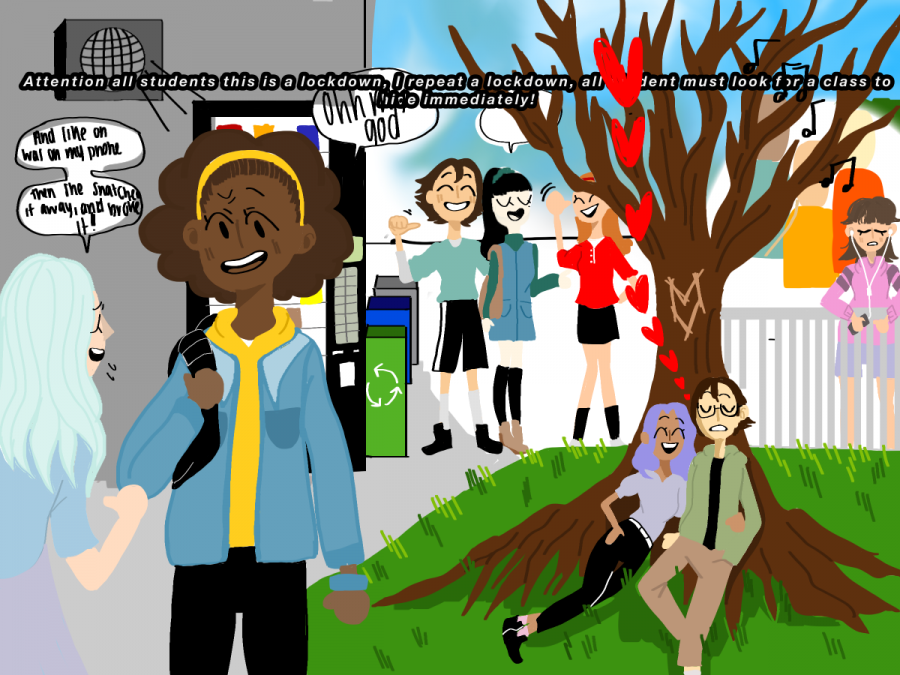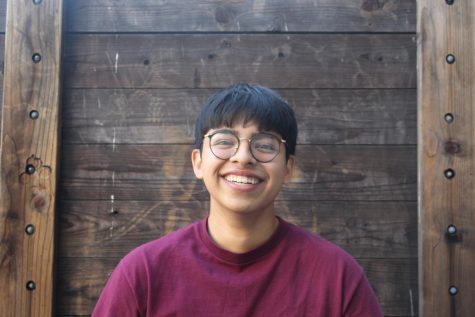As the rise in hate crimes continues, more people accept it as a norm within society
With society becoming increasingly controversial, the rise in hate crimes is on an exponential increase.
Photo by Gisella Escobar
In a moment of emergency, students remain careless due to their normalized perception of transgression.
October 14, 2019
A deepening divide plagues the country as hate crimes bombard cities and plague countless members of American society. Hate crime rates have risen since 2016 according to the United States Department of Justice, which leaves many wondering why. From ethnic disputes to atrocities committed against different religions and communities, hate crimes are rising universally; however, many are quick to dismiss the opportunity to discuss the dangerous normalization of hate crimes.
“I think hate crimes are being normalized because it happens so often that we have become desensitized to it. It doesn’t shock us anymore, it is simply our reality,” Ashley Virabouth (12) said.
Although within the past year we’ve seen hate crimes like the Poway shooting on Saturday, April 27th, social media outlets like Instagram and Twitter are instead filled with conversation of the latest movies and video games, while hate crimes are easily swept away. Whether it be due to the critical normalization of such crimes or greater relevance of other socially turbulent events, this lack of attention has led to a “nobody cares” mindset in the youth, which may be further contributing to the trend of becoming habituated to hate.
“I believe people feel that hate crimes will always be a thing, so anything we do is essentially worthless. Why fight a battle you’ll only lose, right?” Zander Vilaysane (11) said.
Many fail to realize that one’s community is not immune to the potential of a hate crime.
“The greatest fear about being a school principal is that there would be a school shooting on our campus; I call that out because I know that that is a fear that probably a lot of us sort of carry around and don’t really talk about because we’re sort of afraid to say it out loud. Coming from Colorado I’ve had a lot of exposure to school violence and school shootings, so that’s why I take every single rumor of a threat extremely serious for all of our safety,” Mrs. Flores-Dunda said.
Conversation is the best antidote to uncomfortable issues. It is important to discuss these social problems not only inside the classroom but within one’s social circle. At Mission Hills, there is a zero-tolerance for physical force and intimidation. If a hate crime is witnessed or rumored to occur on campus, it is best to report it to a campus supervisor or faculty member. To learn more about how to report a hate crime, go to http://www.sjpd.org/reportingcrime/hatecrimes.html or contact any officer on campus.







Jocelynn Beltran • Oct 15, 2019 at 11:15 am
Great illustration, Gisella! :)) <3
Kaiden Lewis • Oct 15, 2019 at 10:56 am
I totally agree with you hear Antonio,
Due to just having it happen and always the same reaction with it every time and humor and commentary given on it like if it were just as simple as asking someone how their day was and they say,”Nothin’ much”.